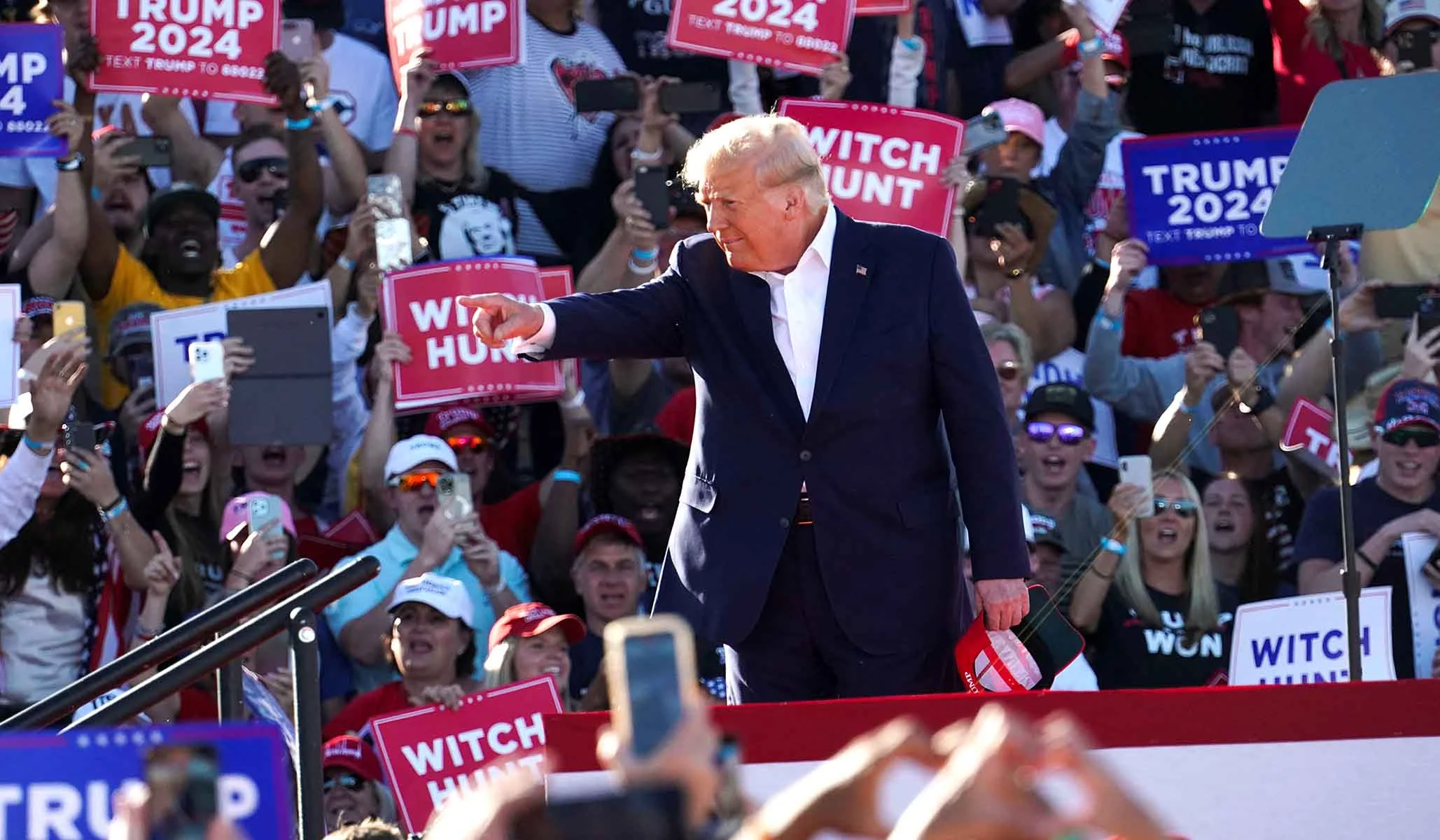Republican-primary voters concerned about the party’s nominating contest have been advised to wait for the debates to better evaluate the candidates. However, Donald Trump’s critics on the right cannot be complacent with the status quo, as his advantage in national Republican-primary polling remains historically large. This should concern Republicans who hope for the consolidation of the anti-Trump vote behind one alternative candidate.
Those pulling for Ron DeSantis to emerge as the last, best Trump alternative should be even more concerned, as disaffected voters are not defaulting to DeSantis, according to trends observed by Reuters/Ipsos pollsters. While the Florida governor’s name recognition is comparable to Trump’s and his favorability ratings sometimes eclipse the former president’s, voters are reluctant to affirm that they will vote for him.
An analysis of the GOP electorate conducted by Republican pollster and strategist Patrick Ruffini provides some clues about how Republican-primary voters are thinking not just about this race but about their personal circumstances and the future of the country. DeSantis owns the voters who are most enthused by his crusade against institutions that even wink in the direction of the campaign of revolutionary social justice that’s migrated out from American college campuses in the last decade. But that amounts to only about 13 percent of the GOP electorate.
To a lesser extent, Donald Trump suffers from this problem, too. The core “MAGA” voters are culturally revanchist, but they also favor a strong safety net and protectionist economic policies and are likely open to the confiscatory-taxation regime necessary to fund these proclivities. This is where the so-called nationalist Right lives. While more numerous than DeSantis’s base, they are also a minority — just 21 percent — of the Republican vote.
The majority of Republican-primary voters are more likely to be male and over the age of 50. About 40 percent of them are degree-holders. And they are deeply concerned about the direction in which the nation is headed. Those concerns are not limited to the latest inscrutable extortion racket to which the class of 2021 is subjecting America’s boardrooms.
The case for Ron DeSantis isn’t hard to make, though he himself seems to struggle to make it. DeSantis brings to the table everything Republicans like about Trump without the incontinence that renders Trump himself unacceptable to a critical mass of the general electorate and weakens his ability to get things done in office. But in making this case, often implicitly, the governor has avoided the appearance of a stark contrast with Trump.
Instead, DeSantis has preferred to emphasize niche issues that have narrow appeal. The goal is obvious — 50 percent plus one more Republican voter. The tactics DeSantis is applying in pursuit of it, however, limit the avenues he can take to achieve it. It’s not going to be enough to oust the dominant figure in Republican politics from his prohibitive perch at the top of the polls. DeSantis has to win more voters, but Trump also has to lose them. So far, DeSantis’s efforts to pick this lock aren’t working.

